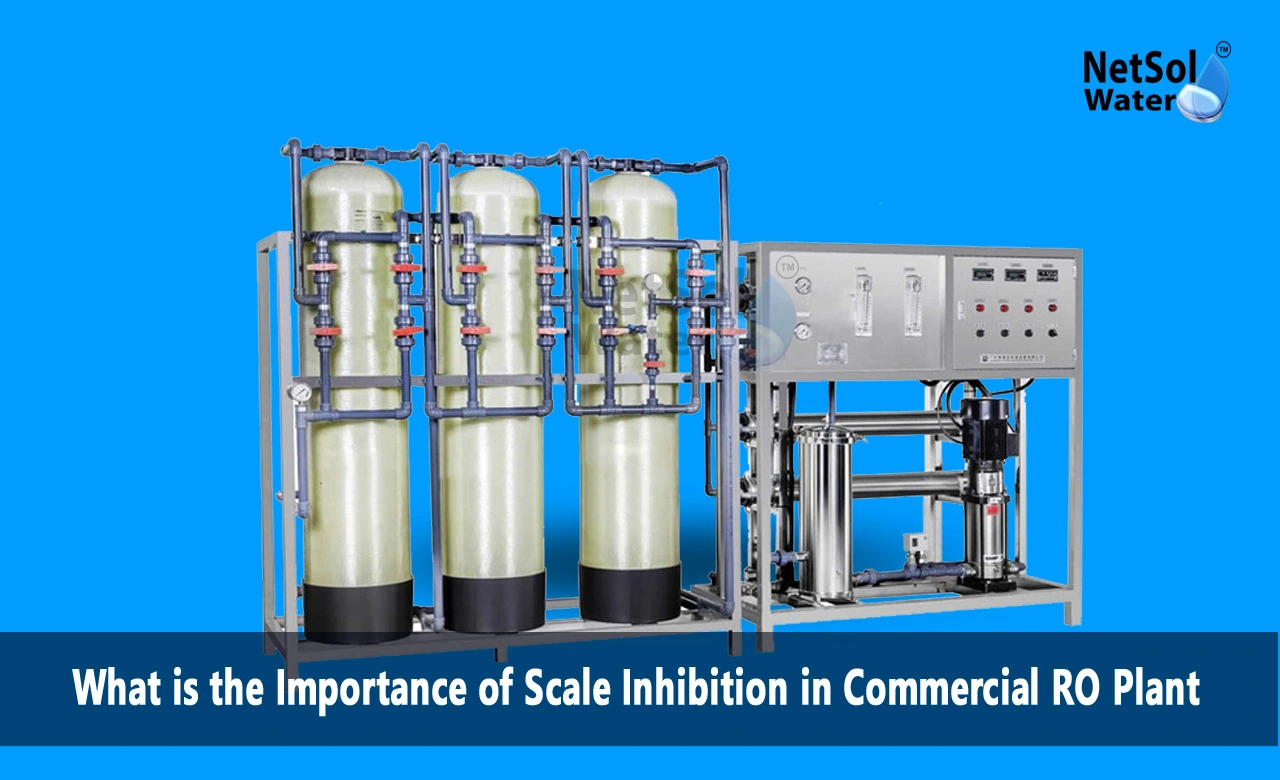What is the Importance of Scale Inhibition in Commercial RO Plant?
In commercial RO plants, the issue of scaling is a significant challenge that can severely impact the efficiency, reliability, and lifespan of the system. Scaling occurs when dissolved minerals in the feedwater precipitate and form insoluble deposits on the surface of the RO membranes or other components of the system. This phenomenon can lead to a reduction in permeate flow, increased energy consumption, and premature membrane fouling or degradation. To combat this issue, scale inhibition measures are crucial in ensuring the smooth and cost-effective operation of commercial RO plants. We will explore the importance of scale inhibition, the different types of scaling, and the various strategies employed to mitigate this challenge.
Understanding Scale Formation in RO Plants
· Types of scales: Calcium carbonate, calcium sulfate, barium sulfate, silica, and others.
· Factors influencing scale formation: Feedwater chemistry, temperature, pressure, and system design.
· Consequences of scaling: Reduced permeate flow, increased energy consumption, membrane fouling, and premature replacement.
Importance of Scale Inhibition
· Maintaining system efficiency and productivity.
· Extending the lifespan of RO membranes and system components.
· Reducing operational costs associated with frequent membrane cleaning and replacement.
· Ensuring consistent and reliable water quality in the permeate.
Scale Inhibition Strategies
· Pretreatment: Removal of scaling ions through processes like softening, pH adjustment, and antiscalant dosing.
· Antiscalant dosing: Introducing scale inhibitors that interfere with nucleation and crystal growth.
· System design considerations: Proper selection of recovery rates, concentrate staging, and energy recovery devices.
· Membrane cleaning protocols: Implementing effective cleaning procedures to remove existing scale deposits.
Antiscalant Selection and Optimization
· Types of antiscalants: Phosphonates, polymaleic acid, polyacrylates, and blended products.
· Factors affecting antiscalant selection: Feedwater chemistry, scaling potential, and system configuration.
· Optimizing antiscalant dosing: Balancing scale inhibition with cost and potential environmental impacts.
· Compatibility with other pretreatment processes and system components.
Monitoring and Control Strategies
· Importance of real-time monitoring: Tracking key parameters like conductivity, pH, and scaling potential.
· Implementing automated control systems for antiscalant dosing and pH adjustment.
· Periodic membrane autopsy and scaling analysis for proactive maintenance.
· Integration of scale prediction software and data analytics for optimized scale management.
Emerging Technologies and Future Trends
· Improved antiscalant formulations with enhanced performance and reduced environmental impact.
· Advanced membrane materials with improved fouling resistance and self-cleaning capabilities.
· Incorporation of nanotechnology and surface modification techniques for scale mitigation.
· Integration of machine learning and artificial intelligence for predictive scaling management.
Conclusion:
Scale inhibition is a critical aspect of commercial RO plant operations, directly impacting the system's efficiency, reliability, and longevity. By understanding the mechanisms of scale formation and implementing effective scale inhibition strategies, such as pretreatment, antiscalant dosing, system design considerations, and monitoring and control measures, RO plant operators can mitigate the risks associated with scaling. Additionally, staying up-to-date with emerging technologies and future trends in scale inhibition can further enhance the performance and sustainability of commercial RO plants. Ultimately, prioritizing scale inhibition not only ensures consistent and high-quality permeate production but also contributes to the overall profitability and environmental sustainability of the desalination industry.
To explore customised commercial RO plants, Industrial RO plants, ETP or STP solutions for your needs in your areas and nearby regions, contact Netsol Water at:
Phone: +91-965-060-8473, Email: enquiry@netsolwater.com



